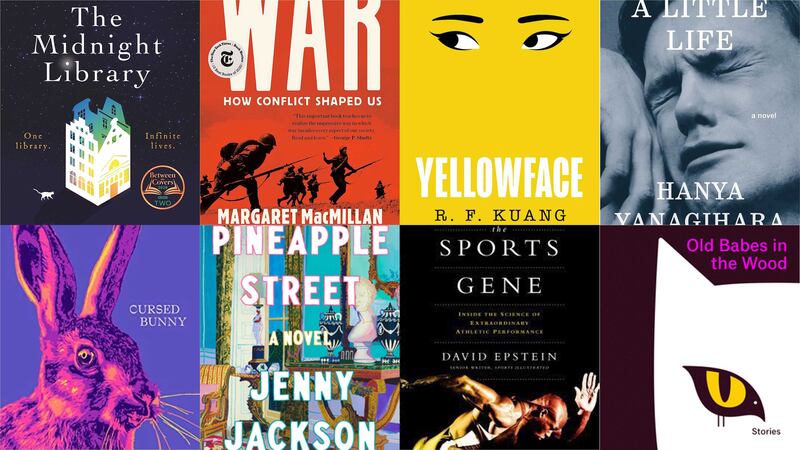From award-winning novels and popular thrillers to history books and memoirs, The National's reading list this summer is rather varied.
Our staff in the Abu Dhabi newsroom and international bureaus in London and Washington DC share the literary treats they are savouring this season.
Below are our favourite reads, arranged by year of release.
Old Babes in the Wood by Margaret Atwood (2023)
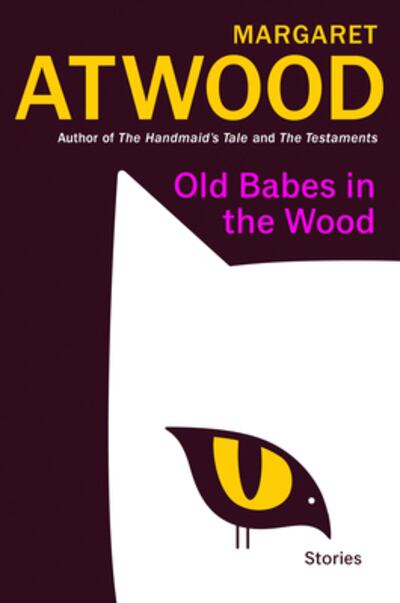
I’m not usually a fan of short stories, but I will hunt out any words by Margaret Atwood – the fact that I am happy to buy a hardback copy of her latest work is evidence of my dedication.
Most will know Atwood as the author of The Handmaid’s Tale. Time and time again, she has created worlds that have drawn me in with ease, fed my feminist thinking and challenged societal issues with a starkness only dystopian fiction can create – but, and it is a crucial but, she layers over the bleakness with the beauty and complexity of humanity.
So, of course, I have spent years scouring for word of a new release. Perhaps I am greedy though, as I would have preferred a thick volume, but maybe this slender selection of short stories is for the best – after all I will, almost reluctantly, have to do more than bury myself in my book this summer.
Nicola Leech, head of audience
Assad: The Triumph of Tyranny by Con Coughlin (2023)
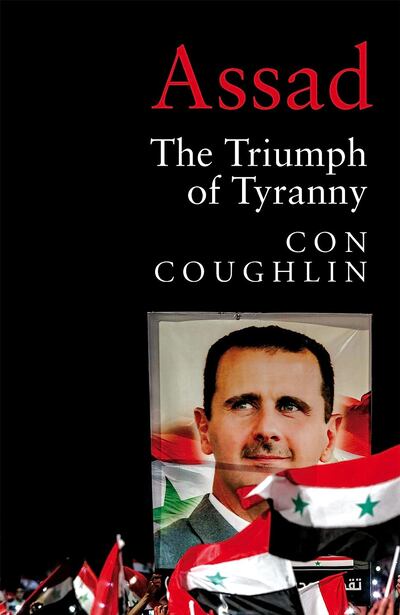
Decades of dedication went into this book.
The author, a newspaper journalist, reported from Lebanon at the height of the civil war and there encountered the Syrian officials who were integral to the Assad family's hold over the country.
There is meticulous research to recap the era of Hafez Al Assad but the heart of the book is the journey of Bashar from son, then sudden heir, to strongman.
Crucial reporting of the period after 9/11 sets the stage for the decade and a bit since 2011 when the image of Bashar Al Assad and his wife Asma has changed markedly.
The West during the War on Terror saw Damascus as something of a useful partner but could never get a grip on quite how to court the ambitious couple.
“The general view in Washington and London was that it would be useful to have Syria on board, but it was of little consequence if Syrian co-operation was not forthcoming,” he writes.
At the crucial moment, the White House lost its nerve and Assad bought time to find a friend elsewhere.
Damien McElroy, London bureau chief
Yellowface by Rebecca F Kuang (2023)
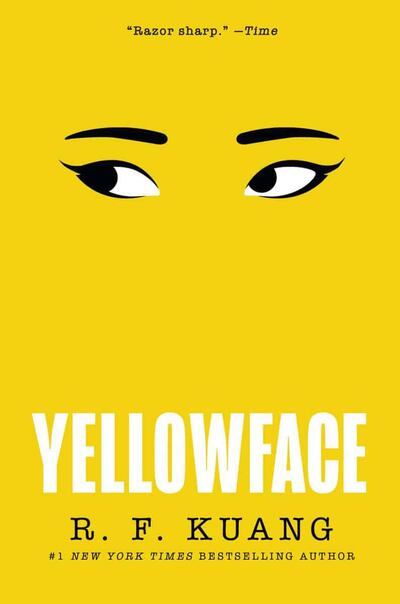
For the past couple of months, this striking yellow cover seemed to pop up all over my Instagram feed, accompanied by glowing reviews for author Rebecca F Kuang’s latest title.
I am currently loving the ease of audiobooks so, while I am not exactly “reading” Yellowface, I am still hooked. Kuang tells the story of June Hayward and Athena Liu, two writers hoping to get a book published and how one uses the death of the other to her advantage.
This satire deftly tackles very real issues of racism and cultural appropriation, as well as plagiarism in the publishing industry.
Fast-paced and immersive, it is one of those titles that you cannot put down till you are done.
Aarti Jhurani, sub-editor
Pineapple Street by Jenny Jackson (2023)
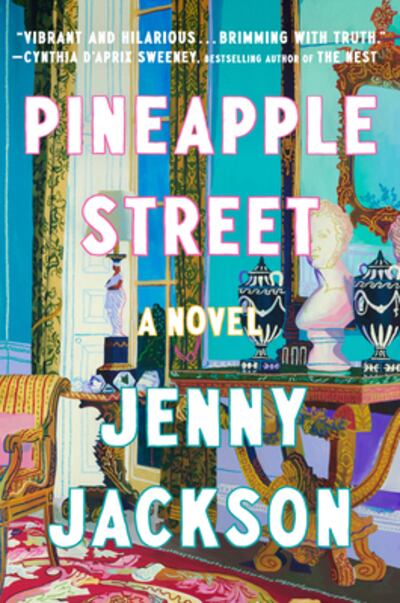
Jenny Jackson's debut novel is a smart and enjoyable summer read.
Set in a wealthy enclave of Brooklyn Heights, it follows the old-money Stockton family as they waft through their privileged townhouse existence.
Others have compared Jackson's work to the television dramas White Lotus or Succession and certainly if you enjoyed those shows you would find much to like here.
The author is at her best when exposing the fissures in the Stockton's relationships and rivalries, although readers may also be intrigued by a pair of references to the UAE in its clever narrative arc: the first provides a glimpse of the cloistered unworldliness of one of the central characters, the other offers a second chance for another much later in the piece.
Nick March, assistant editor in chief
The 6:20 Man by David Baldacci (2022)
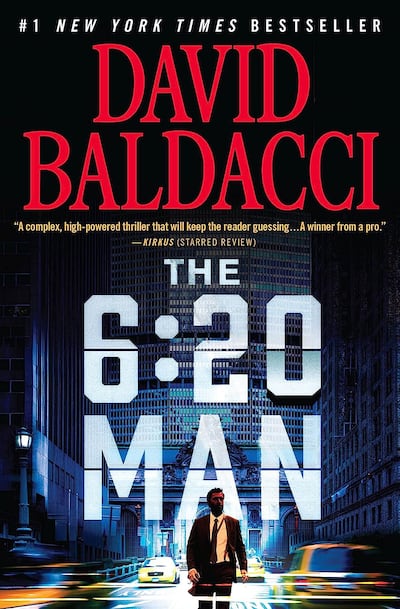
I’m an absolute sucker for a good thriller. A book that I can pick up at the end of a long day and immediately be swept up into a world that, while often not believable, is demonstrably different from the one I inhabit.
Few authors create that world better than David Baldacci. He’s as prolific as he is talented with numerous series on the go. I find myself reading a new release what feels like every few months.
The 6:20 Man follows a veteran with a dark past as he navigates the world of high-stakes finance, using his perhaps unbelievable military training to dismantle bad guys and bad entities. It was thoroughly enjoyable, fast-paced and action-packed. Just what I look for in a book.
Willy Lowry, senior US correspondent
No Plan B by Lee Child (2022)
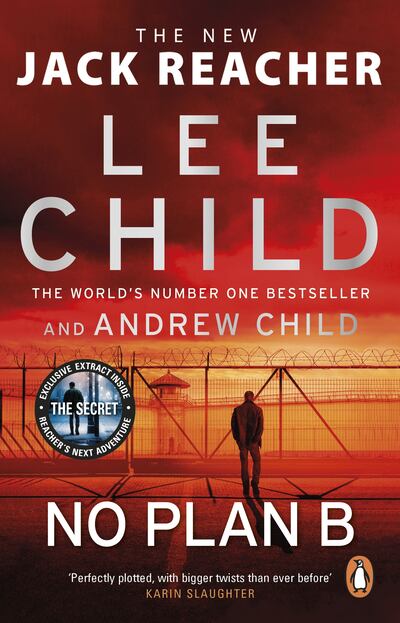
Lee Child's popular Jack Reacher series is my (not-so) guilty pleasure.
This is the 27th book featuring our coffee-drinking, burger-eating, loner protagonist, who travels the United States carrying nothing but a toothbrush, stumbling upon trouble, solving crime, and meting out his own brand of justice.
On this occasion, Reacher witnesses a woman being thrown in front of a bus, which leads to him unravelling a corrupt prison conspiracy several states away using the skills he picked up when he was a US military police investigator. It is a glorious combination of predictability and intrigue.
Laura Koot, managing editor
Athens: City of Wisdom by Bruce Clark (2021)
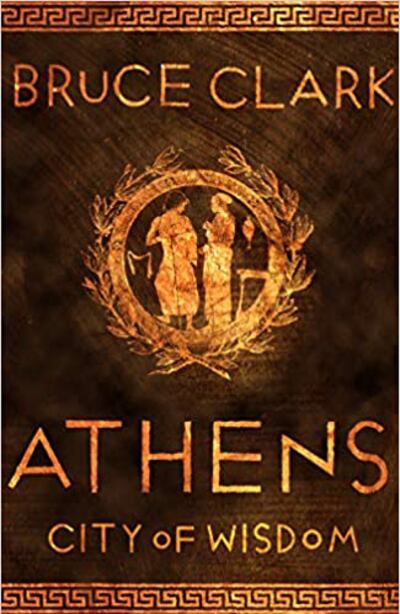
Covering nearly 3,500 years of recorded history in one book is no mean feat, but Bruce Clark – a veteran newsman and philhellene who was a correspondent in Greece in the 1980s – pulls it off with aplomb.
This extremely readable history of arguably one of the world’s most consequential cities is reassuringly well-researched, but Clark wears this knowledge lightly and brings the reader with him on a journey through classical Greece, the Byzantines, Ottoman rule, the Nazi occupation, the high-water mark of the 2014 Olympics and the juddering arrival of the financial crisis.
No trip to Athens is complete without City of Wisdom.
Declan McVeigh, staff opinion writer
War: How Conflict Shaped Us by Margaret MacMillan (2021)
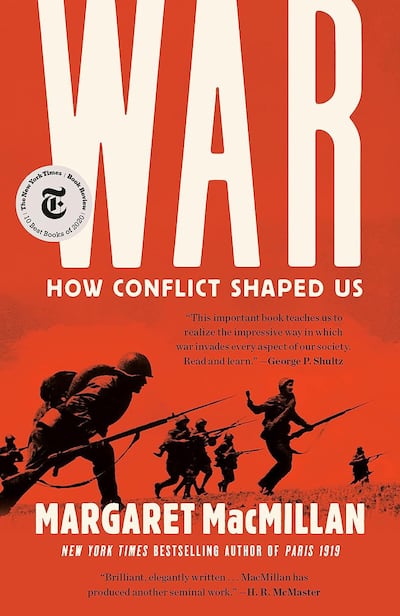
This is a brilliantly researched and well-written book about how human beings organise themselves in societies and communities.
While the author uses the prism of war to tell the story of communities, leaders and nations, the book takes a much broader look at how the world has evolved. She charts the course of militaries and political entities through the ages – and how dealing with conflict permeates most aspects of life.
She explains that “war raises the fundamental questions about what it is to be human and about the essence of human society. Does war bring out the bestial side of human nature, or the best?".
Margaret MacMillan wrote the most compelling accounts of the First World War in two books, The War That Ended Peace: The Road to 1914 and Peacemakers: The Paris Peace Conference of 1919 and Its Attempt to End War.
This is a much broader take, and is informed by a wide array of stories, from the Trojan War to the invasions of Iraq and Afghanistan. It is thematically developed, rather than in a chronological way, making the ideas and concepts more relatable to the reader.
The opening lines of the book explain it should be essential reading for anyone interested in human history and development.
“War. The word alone raises a range of emotions from horror to admiration. Some of us choose to avert our eyes as if the very act of remembering and thinking about war somehow brings it closer … As a historian I firmly believe that we have to include war in our study of human history if we are to make any sense of the past.”
Mina Al-Oraibi, editor in chief
A Swim in a Pond in the Rain by George Saunders (2021)
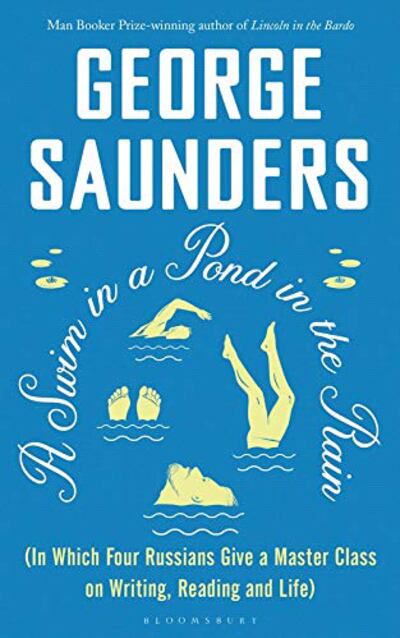
A brilliant collection of seven short stories from Russian literary giants – Anton Chekhov, Leo Tolstoy, Nikolai Gogoland, Ivan Turgenev – as chosen by American writer George Saunders.
Saunders breaks down each story, looking at the ways the master storytellers shaped their characters and their narratives.
It may seem like a book for writers, but I think it’s for everyone. I found a lot of wisdom and value in having a genius like Saunders hold your hand and take you on the journey. It's a book you finish as a wiser reader.
Suhail Akram, multimedia journalist
The Midnight Library by Matt Haig (2020)
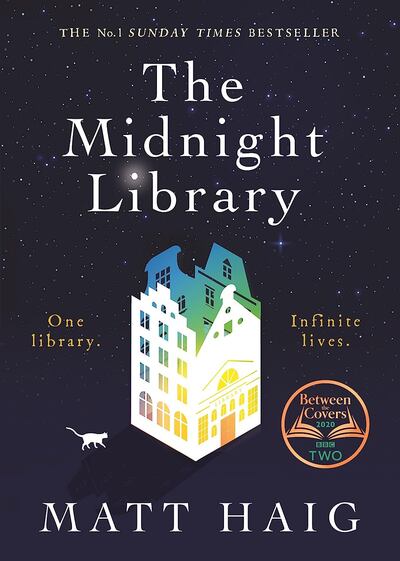
What would you do if you had the chance to relive chapters of your life differently? This enticing premise is what drew me to Matt Haig’s book when it was recommended by a friend recently.
Of course, it’s not the most original premise for a novel. But within the context of mental health, and a deep dive into depression and anxiety, it’s a powerful read that is stark yet ultimately comforting.
At the beginning of the book, Haig’s heroine Nora tries to kill herself. She then finds herself between life and death, in a library filled with stories about her life. There, she’s given the option to relive her life, making different choices from those she had previously.
There are no grand twists or complicated plot lines. Just Nora’s journey into a multiverse of possibilities that, just like life, brings a mixed bag of prospects.
David Tusing, assistant features editor
Last Days in Old Europe by Richard Bassett (2019)
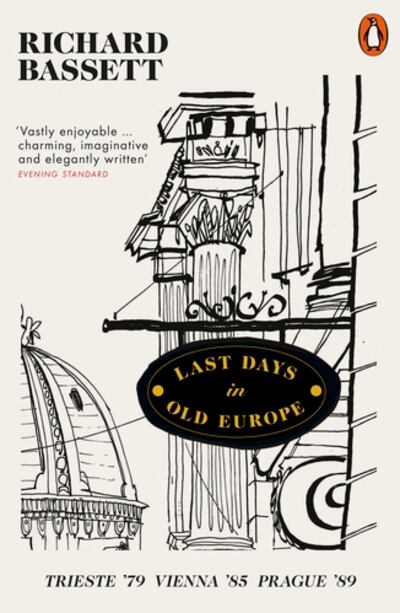
Richard Bassett’s charming memoir covers his time spent in Trieste, Vienna and Prague during the twilight of the Cold War as a teacher, musician and foreign correspondent.
It is an evocative account of an old Europe with its faded aristocrats still dreaming of the Hapsburg Empire; bright young British diplomats and sinister Soviet-era media handlers set against the backdrop of the last days of the Iron Curtain.
Rather than grand events, I was more intrigued by Bassett’s observations of the cafes, food, hotels, cities and architecture that capture a world about to be swept away for ever, such as this poetic description of Trieste: “With its soft imperial Viennese architecture, the bright light, the superb coffee, the abundant evidence of different peoples and creeds and a wealth of old imperial and royal civilisation, it was almost as if the essence of the Hapsburg Empire had been bottled into this one place for preservation for future generations so that the stranger might pass along its streets thinking: 'Ah yes. This must be what an imperial Austrian city was really like'.”
John Dennehy, reporter
Me by Elton John (2019)
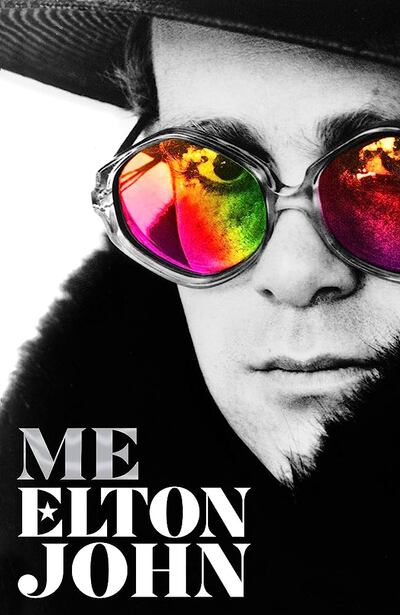
With Elton John recently concluding his last world tour, in Stockholm, I wanted to know more about the artist than his classic hits.
The memoir is insightful and hilarious, recalling his journey from a shy aspiring musician growing up in London to selling out stadiums around the globe.
While the singer, born Reginald Dwight, is unsparing when it comes to the toll his famed excesses took on his personal and professional life, Me is also full of warmth as he details his celebrated musical partnership with songwriter Bernie Taupin and the restless creative drive that kept him at the top of his craft for five decades.
Saeed Saeed, features writer, arts and culture
Cursed Bunny by Bora Chung (2017)
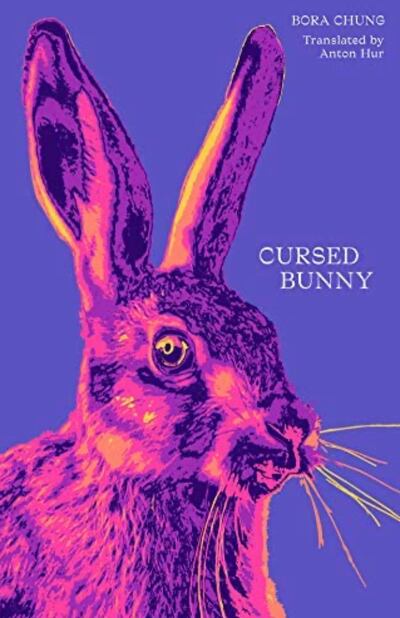
Recently, I have found myself more drawn to books of short fiction stories, they seem to fit in well with my busy schedule, and still give the same satisfaction of finishing a story in its entirety.
Cursed Bunny is a bizarre collection of dark and sometimes funny short stories from the wild imagination of the South Korean writer Bora Chung. Every short chapter is a twisted tale, and each nightmare scenario takes an unexpected turn that encourages my short attention span to keep going.
So far, my favourite was the strange story titled, The Head. I won’t ruin it, but a woman has a terrifying bathroom visitor who pops their head into her life from the most unexpected place.
This book is not for the faint-hearted, but something about its macabre themes keeps the reader engrossed.
Enas Refaei, head of multimedia
Reasons to Stay Alive by Matt Haig (2015)
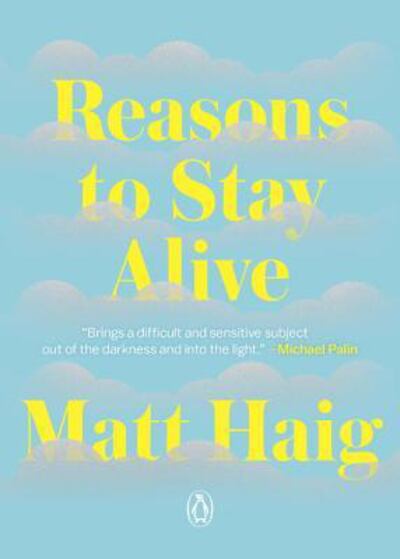
This is a moving, funny and joyous exploration of how to live better, love better and feel more alive.
Haig shares his experience with clinical depression, written in an honest and relatable way. He doesn't shy away from the dark thoughts and feelings that come with depression and anxiety.
In 2018, a year when nothing was going right for me, this book offered me hope and inspiration in my life. It is full of practical advice on ways to make the most of your time on Earth.
Thoraya Abdullahi, social media journalist
Ghachar Ghochar, by Vivek Shanbhag, translated by Srinath Perur (2015)
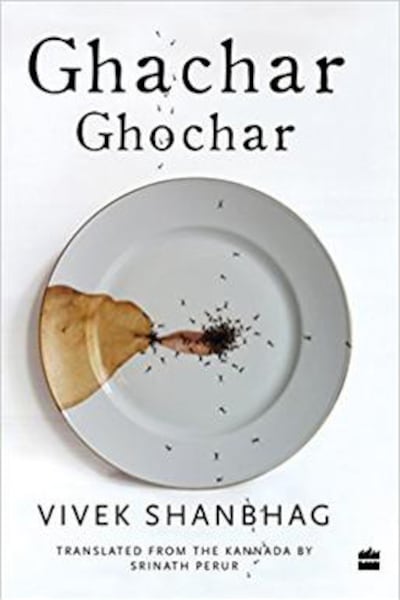
A blink-and-you'll-finish-it novella by Kannada author Vivek Shanbhag, Ghachar Ghochar is full of deliciously disturbing contrasts.
The slow-paced narrative comes alive with sardonic observations, while the protagonist is an anti-hero languishing under the shadow of a wife with a sharp tongue, a mother who has mastered the art of emotional blackmail, and an uncle who earns the family’s keep and keeps them well in line.
Turning the concept of the loving Indian joint family on its head, Ghachar Ghochar – literally, “what a mess” – is a psychological drama with a hauntingly open-ended conclusion, a twist that had me turning back and forth between pages.
Panna Munyal, lifestyle editor
A Little Life by Hanya Yanagihara (2015)
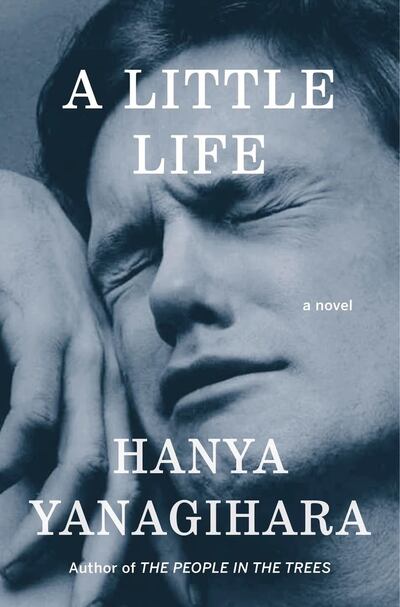
This summer I have promised myself I will finally crack Hanya Yanagihara’s A Little Life.
I’ve started and retired this book several times in the past, but not because it’s a lacklustre read – it’s exactly the opposite. It is a rollercoaster of emotion set in New York City, the novel details the lives of four college friends, Jude, Willem, JB and Malcolm.
At 800-plus pages and with an intense subject matter, the book demands time and concentration.
This year, however, I have a reading deadline having bought tickets to see the West End adaptation of A Little Life later this summer and there is no way I can step foot in the theatre without finishing the novel first.
Farah Andrews, head of features
The Sports Gene by David Epstein (2013)
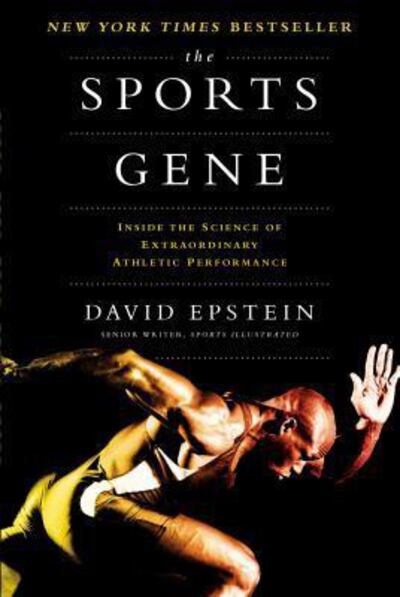
If you’ve ever wondered why Jamaican sprinters are the fastest human beings on the planet or how East African tribesmen can seemingly run for hours without breaking sweat, then pick up The Sports Gene by David Epstein for a simple and entertaining explanation.
The American journalist reveals the science behind what creates a world-class athlete, and how it is more than just the lightning strike of genetics that forges an Olympic gold medallist.
A fascinating insight into the age-old debate of nature over nurture and the 10,000 hours of practice to find sporting perfection. Epstein reveals how the finest athletes on Earth are made, while superbly explaining the complexities behind elite competition.
Nick Webster, health editor
Flights by Olga Tokarczuk, translated by Jennifer Croft (2007)

Between its subject matter and fragmentary nature, Flights is the perfect novel to accompany you on your summer travels.
Written by Nobel laureate Olga Tokarczuk, the book’s original Polish title refers to a sect of Old Believers who see constant travel as a way of avoiding evil.
The novel is a philosophical reflection of modern-day travel, comprising vignettes that blend fiction and fact. From pieces that ruminate on train travel, museum visits and the joys of being in constant motion to historical narratives, which include the story of Frederic Chopin’s heart being transported back to Warsaw after the composer’s death, Flights is a novel that you can read piecemeal or devour whole.
Either way, it is an unforgettable read. The novel was written in Polish in 2007 and translated into English by Jennifer Croft in 2017. In 2018 it won the Man Booker International Prize, the first time a Polish author received the award.
Razmig Bedirian, features writer, arts and culture
A Short History of Tractors in Ukrainian by Marina Lewycka (2005)
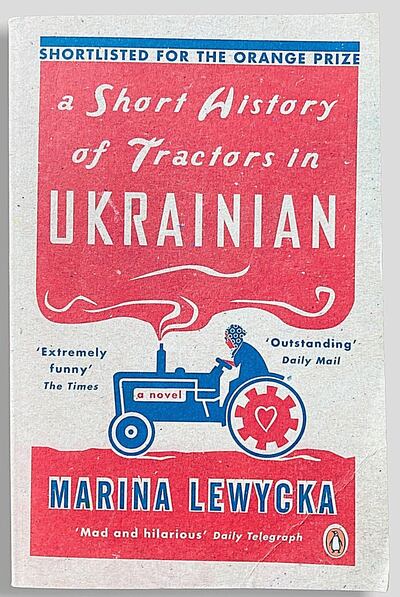
Don’t be put off by the name, this is a novel, and a side-splitting, tearful masterpiece at that.
Marina Lewycka’s humorous look at the Ukrainian community in England is told through the eyes of two warring sisters who worry for their elderly widower father as he’s wooed by a voluptuous, gold-digging, “most beautiful woman” from the motherland.
Nadia and Vera differ in their opinion about their 84-year-old Pappa’s new zest for life at the hands of the satin-loving, Rolls-Royce-wanting Valentina, 36 – especially when he announces he’s about to marry her.
I grew up in a household of immigrants in the UK and this book wonderfully captures the endless frustrations of a younger family member trying – and failing miserably – to make a stubborn pensioner see sense (sorry, Nonna!).
Dean Wilkins, sub-editor
Parable of the Sower by Octavia E Butler (1993)
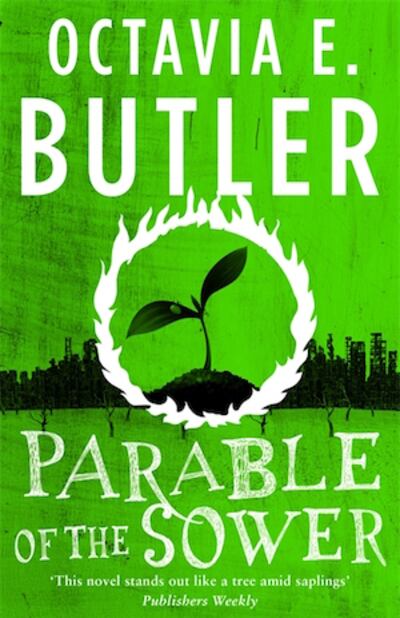
Octavia E Butler’s works feature mind-bending explorations of time travel, alien species and telepathic shape shifters, but this summer I’ve been unable to put down a much more Earthly novel: Parable of the Sower.
Butler’s classic was published in 1993 but feels urgently relevant and uncannily prescient. It centres on a Southern California in 2024 that has been all but destroyed by water shortages, wildfires, lawlessness and government collapse, as seen through the eyes of a black teenage girl.
It’s a frightening book, but its pages are interlaced with hope and possibility.
Thomas Watkins, Washington bureau chief
East of Eden by John Steinbeck (1952)
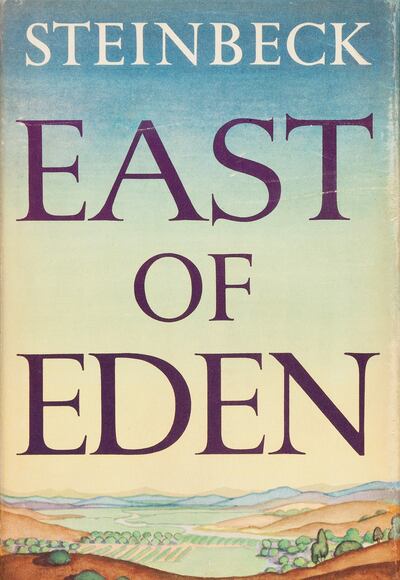
A literary masterpiece that I love to read time and again, and it will be on my list again this summer.
The writing has a profound depth, exploring timeless themes of good and evil, the complexities of human nature, and the eternal struggle between destiny and free will.
Steinbeck's storytelling weaves together the lives of multidimensional characters as they live through life's highs and lows and tackle moral dilemmas.
With each read, and as I've grown up, I find myself identifying with different characters, which changes the feel of the book every time.
John Steinbeck himself said everything he had written up until East of Eden was just “practice”, which goes a fair way to explaining how this book achieved such perfection.
Sarah Forster, national editor
